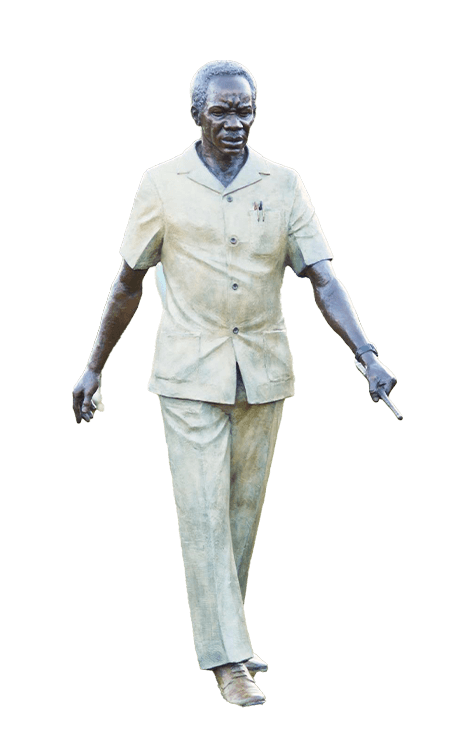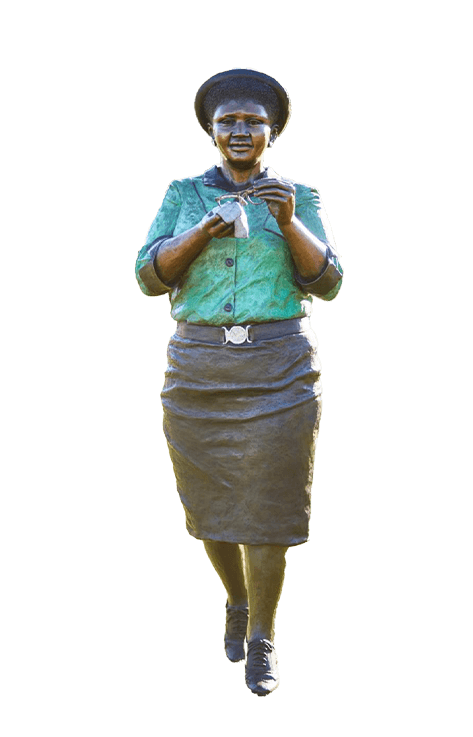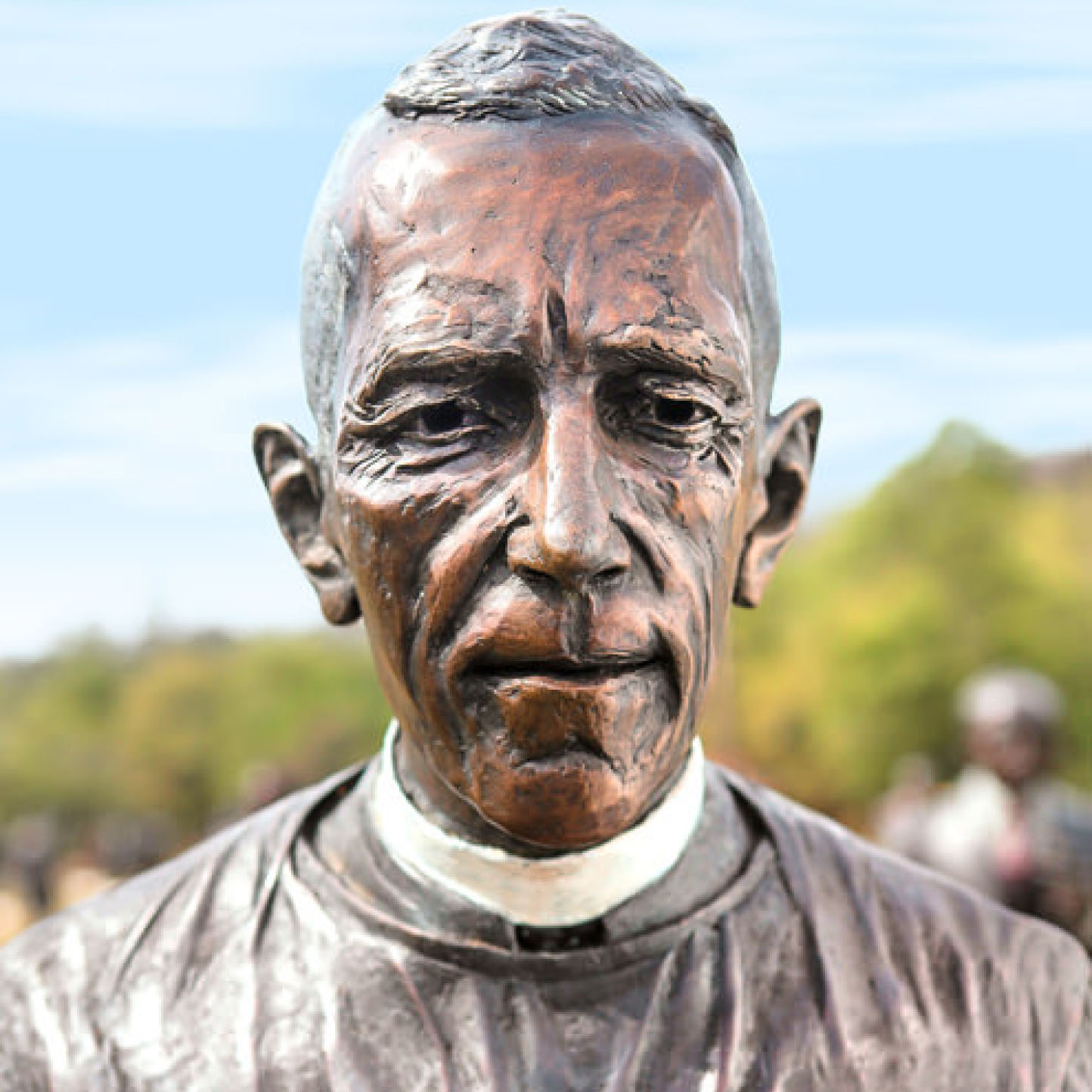
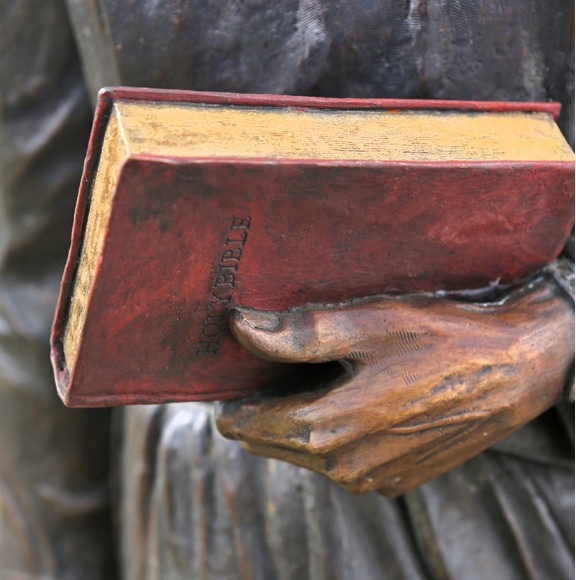
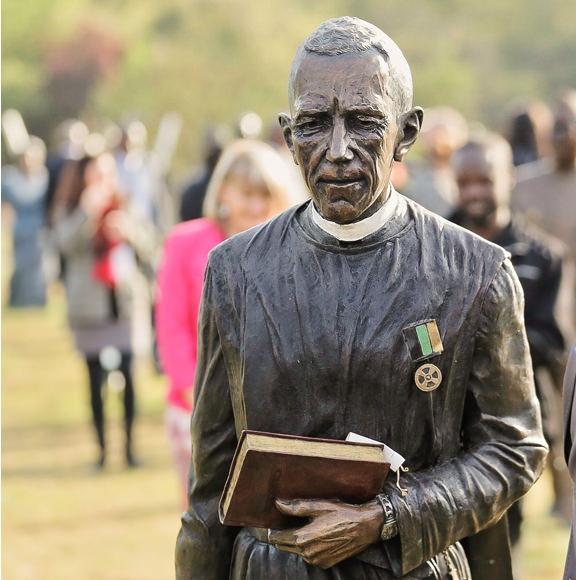
"I once said to Chief Luthuli that the road to freedom is long and hazardous many used to drop out along the way. But I believe Father Huddleston will go with us to the end."
Oliver Tambo as quoted in 'Beyond the Engeli Mountains' by Luli Callinicos
Archbishop Trevor Huddleston
1913 – 1998
Anglican Archbishop, President of the British Anti-Apartheid Movement, Chairman of the International Defence and Aid Fund for Southern Africa.
Huddleston was born to an officer in the Indian Navy and his Anglo-Argentinean wife in Bedford, England. After travels in India, Burma and Sri Lanka as a youth, he returned to England to enrol at theological college.
He was ordained in 1937 after attending Wells Theological College and joined the Anglican monastic order of the Community of Resurrection (CR) in 1939. He was sent to the CR mission in Johannesburg, South Africa, where he ministered in the townships of Sophiatown and Orlando between 1943 and 1956.
He was also the principal of St Peter's Secondary School in Rosettenville, the first school in the then Transvaal from which Africans could matriculate. Its graduates maintained close ties with each other and were among the earliest members of the African National Congress Youth League.
When the Group Areas Act was passed in 1950, entrenching the spatial separation of South Africa along racial lines, Huddleston, along with Nelson Mandela, Helen Joseph and Ruth First led protests against the forced removal of Africans from Sophiatown. The Community of the Resurrection opted to close St Peter's rather than submit it to control by the racist government in terms of the 1953 Bantu Education Act. Huddleston's actions brought him into conflict with the apartheid authorities.
When his order recalled him to England in 1955, he authored Naught for Your Comfort, a personal account of his experiences in Johannesburg that helped bring the horrors of apartheid to international attention. The racist government declared him a prohibited immigrant after his departure.
During his 12 years in South Africa, Huddleston earned the nickname Makhalipile or 'Dauntless One' and forged close friendships with leaders like Nelson Mandela and Oliver Tambo. At the Congress of the People in Kliptown in 1955, Huddleston, Chief Albert Luthuli and Yusuf Dadoo were the first three leaders to be awarded the ANC's highest award Isithwalandwe for their contribution to and sacrifice for the liberation struggle.
He continued to fight apartheid from London, where in addition to church work, he became the president of the British Anti-Apartheid Movement in 1981 and the chair of the International Defence and Aid Fund for southern Africa (IDAF) following the death of Canon Collins in December 1982. The IDAF smuggled over 100 million pounds into South Africa for the defence of thousands of political activists and the support of their families while they were in prison.
Huddleston fought apartheid in South Africa and widely publicised its abuses for almost four decades. As a revered and trusted friend of the African cause, he was most admired for his courage, speaking out at a time when identifying with the notion of equality for all South Africans was seen as the height of betrayal by the privileged whites.
In 1991 Huddleston returned to South Africa, intending to spend his last years here, but he changed his mind and went back to England. After his death and true to his wish, his ashes were interred next to the Church of Christ the King in Sophiatown, South Africa.
